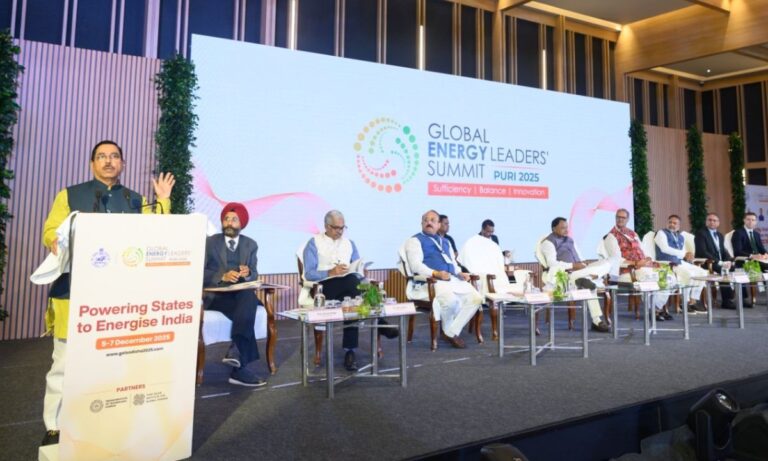
G20 4th Edition of SELM: Future of Humanity Lies in Our Collective Ability to Utilise Space Tech (Photo Courtesy: PIB)
India’s Space StartUp sector has gained significant momentum, with over 140 companies emerging within a short period, according to Union Minister of State (Independent Charge) for Science and Technology, Dr Jitendra Singh. He highlighted India’s growing capabilities and potential in Space Technology during his speech at the inaugural session of the G20 4th edition of Space Economy Leaders Meeting (SELM).
Dr Jitendra Singh attributed the success of India’s Space sector to Prime Minister Narendra Modi, who opened it up to private players, leading to a quantum jump in recent years. Despite starting its Space journey later than some other countries, India is now providing valuable insights and inputs to the world’s leading Space agencies. This was evident during Prime Minister Narendra Modi’s recent visit to the USA, where Space-related agreements formed a significant part of the agenda, indicating that even established Space technology pioneers are looking to India for collaboration and value addition.
Praising the role of the private sector, Dr Jitendra Singh emphasized its pivotal position in the space economy. He stressed the importance of global cooperation and alliances, given the increasing ambition of humans to explore outer space. An alliance of responsible space-faring nations, aimed at enhancing the share of the space economy in the global economy, is the need of the hour.
Dr Jitendra Singh stated, “The future development of humanity lies in our collective ability to responsibly harness, pool resources, and utilize space technology towards achieving sustainable development goals and improving the lives of the common man.” He added that an alliance of responsible space-faring nations is necessary, in line with the event’s theme, “One Earth, One Space, and One Future,” which aligns with India’s G20 theme, encapsulated in the Sanskrit phrase “Vasudhaiva Kutumbakam.”
The Minister highlighted that space technology integrates various pillars of the economy under one umbrella and investments in this sector will have a multiplier effect on overall country and economic development. Studies have projected that the space economy will become a trillion-dollar sector in the coming decades. In this regard, India has taken various measures to open up its space economy, integrate it with other countries, and develop alliances.
Dr Jitendra Singh warmly welcomed the participation of private partners and think tanks from across the globe in the G20 Space Economy Leaders Meeting, expressing his hope that it will lead to a convergence on the use of space technologies to create a real and positive impact on the planet.
Considering that G20 countries, along with partner nations, represent approximately 85% of global GDP, 75% of world trade, and two-thirds of the world’s population, the decisions taken at the meeting will have far-reaching implications for the future of the space economy, he emphasized.
Dr Jitendra Singh highlighted India’s six-decade-long space program and its application potential across various sectors such as science and technology, telecommunication, agriculture, education, health, rural development, disaster warning and mitigation, climate change studies, navigation, defense, and governance.
The two-day meeting is being attended by Heads of National Space Agencies, leaders of space industries from G20 nations, senior diplomats from G20 and invited countries, and other dignitaries.






